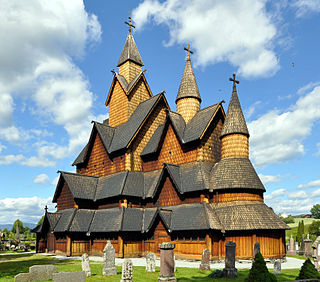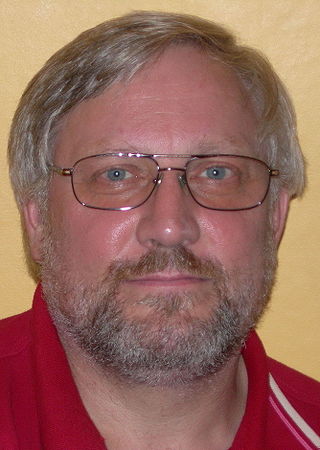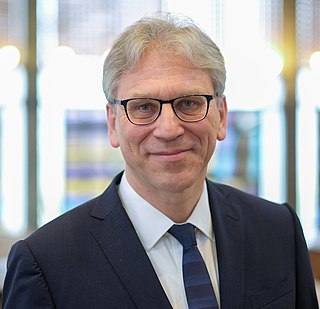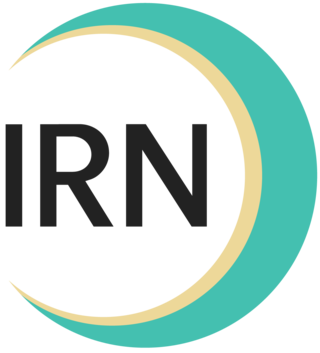
Abid Qayyum Raja is a Norwegian lawyer and Liberal Party politician who served as Minister of Culture from 2020 to 2021. He was elected to the Storting as representative for Akershus in 2013 where he served as second deputy chair of the Standing Committee on Transport and Communications and also is a member of the Standing Committee on Scrutiny and Constitutional Affairs. In October 2017, Raja was elected as the vice-president of the Storting, the second time in Norway's history that a Muslim has been elected to that office.

Deeyah Khan is a Norwegian documentary film director and human rights activist of Punjabi/Pashtun descent. Deeyah is a two-time Emmy Award winner, two time Peabody Award winner, a BAFTA winner and has received the Royal Television Society award for Best Factual Director. She has made seven documentaries to date, all have been shown on ITV in the UK as part of its Exposure series.

Religion in Norway is dominated by Lutheran Christianity, with 63.7% of the population belonging to the Evangelical Lutheran Church of Norway in 2022. The Catholic Church is the next largest Christian church at 3.1%. The unaffiliated make up 18.3% of the population. Islam is followed by 3.4% of the population.
Minhaj-ul-Quran International is an international non-governmental organization (NGO) founded by Muhammad Tahir-ul-Qadri in 1980 in Lahore, Pakistan. Its headquarters is based in Lahore, Pakistan and has branches in 93 countries.

Danish newspaper Jyllands-Posten's publication of satirical cartoons of the Islamic prophet Muhammad on September 30, 2005, led to violence, arrests, inter-governmental tension, and debate about the scope of free speech and the place of Muslims in the West. Many Muslims stressed that the image of Muhammad is blasphemous, while many Westerners defended the right of free speech. A number of governments, organizations, and individuals have issued statements defining their stance on the protests or cartoons.

Islam is the second largest religion in Norway after Christianity. As of 2020, the number of Muslims living in Norway was 182,607. The majority of Muslims in Norway are Sunni, with a significant Shia minority. 55 percent of Muslims in the country live in Oslo and Viken. The vast majority of Muslims have an immigrant background, and very few Norwegians are Muslim.
Pakistani Norwegians are Norwegians of Pakistani descent, 65.23% of Pakistanis in Norway live in the capital Oslo. First-generation Pakistani Norwegians, who migrate from Pakistan, are distinguished from the mainstream in several demographic aspects, while second-generation Pakistani Norwegians, who are born in Norway, are well established in Norway and have gone on to become professionals and politicians.
Peder Are Nøstvold Jensen is a Norwegian far-right counter-jihad blogger who writes under the pseudonym Fjordman. Jensen wrote anonymously as Fjordman starting in 2005, until he disclosed his identity in 2011. He has been active in the counter-jihad movement, which argues that multiculturalism, particularly Muslim mass immigration, poses an existential threat to Western civilization. He has promoted this belief in a self-published book titled Defeating Eurabia, and stated that "Islam, and all those who practice it, must be totally and physically removed from the entire Western world".
The international reaction to Fitna consisted of condemnation from Muslims, several fatwa against Geert Wilders, and attempts by many Islamic countries to censor the film. The Dutch government immediately distanced itself from the film. Several Muslim organizations and political parties organized boycotts against Dutch products.

Lars Gule is a Norwegian philosopher. He has graduated with a doctorate in philosophy, and is an associate professor. From 2000 to 2005 he was secretary general of the Norwegian Humanist Association. Gule became known to the general public in 1977 when after having joined the DFLP group, Gule was arrested in Beirut, Lebanon with Semtex in his luggage intended for Israeli targets leading to a six-month conviction and subsequent deportation. He remains active as a anti-Israel activist. Gule is often used by Norwegian media as an authority on questions regarding the Middle East, Islam and extremism.

Edvard Bull was a Norwegian historian and politician for the Labour Party. He took the doctorate in 1912 and became a professor at the University of Kristiania in 1917, and is known for writings on a broad range of subjects. In addition to his academic work, he is known for his work on Norsk biografisk leksikon. His Marxist leanings inspired him to take up a parallel political career, in the Labour Party. Situated on the radical wing in the 1910s, he was among the architects as the Labour Party denounced the Twenty-one Conditions in 1923 and reunited with the social democrats in 1927. He was the deputy party leader from 1923 to 1932, and served as Norwegian Minister of Foreign Affairs in Hornsrud's short-lived cabinet in 1928.
Nora Louise Ahlberg is a Norwegian psychologist. She was Professor of Psychology at the University of Oslo and Director of the Psychosocial Centre for Refugees and later Director of the Norwegian Centre for Migration and Minority Health, a government agency that is now part of the Norwegian Institute of Public Health.

Olav Fykse Tveit is a Norwegian Lutheran theologian and bishop, and the current Preses of the Bishops' Conference of the Church of Norway. He was elected to the post of general secretary of the World Council of Churches on 27 August 2009. He entered office on 1 January 2010, for a proposed term of five years, and was re-elected to a second term in July 2014. He resigned from the post in March 2020, having been elected Preses of the Bishops' Conference of the Church of Norway.
Jon Grepstad is a Norwegian freelance journalist, photographer, peace activist and former head of information of the Norwegian Language Council.

Hanne Stine Nabintu Herland is a Norwegian author, who hosts a website and Youtube channel both named the Herland Report. She has a master's degree in history of religions from the University of Oslo.
Document.no is a Norwegian far-right anti-immigration online newspaper. Academics have identified Document.no as an anti-Muslim website permeated by the Eurabia conspiracy theory. The website received global media attention in connection with the 2011 Norway attacks due to its association with perpetrator Anders Behring Breivik, a former comment section poster on the website.
Hallgrim Berg is a Norwegian author, traditional folk musician, and former politician for the Conservative Party. He was a member of the Norwegian Parliament from 1982 to 1997, representing Buskerud. He has released several books and been involved in several musical albums, and held numerous public positions.
Islam Net is a Salafi Islamic organisation in Norway, founded by Pakistani-Norwegian engineering student Fahad Qureshi in 2008. It has local chapters in Oslo, Akershus, Tromsø and Bodø, and is initiating a fifth in Trondheim. By 2011, the organisation had more than 1,400 paying members, centred on students.

The Islamic Council Norway is an umbrella organisation for Muslim congregations and organisations in Norway. Currently, it represents 41 congregations totalling about 60,000 members. The offices are located in Oslo. It is a member of the European Council for Fatwa and Research (ECFR).
Islamophobia in Norway refers to the set of discourses, behaviours and structures which express feelings of anxiety, fear, hostility and rejection towards Islam and/or Muslims in Norway. Islamophobia can manifest itself through discrimination in the workforce, negative coverage in the media, and violence against Muslims.










